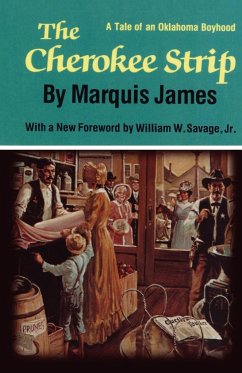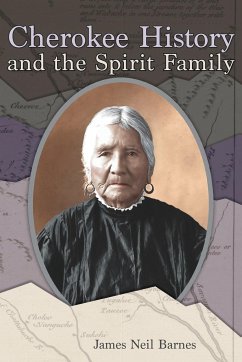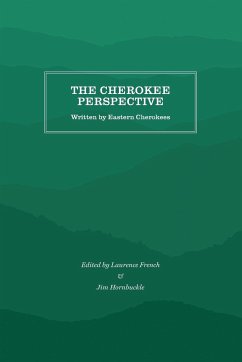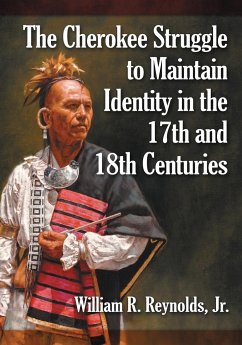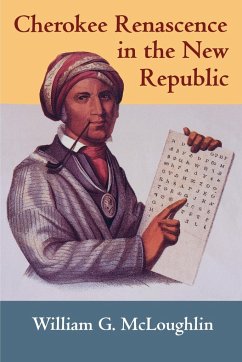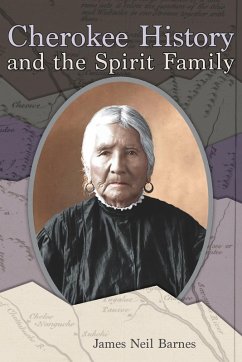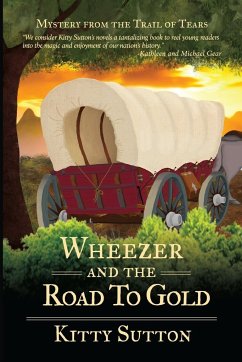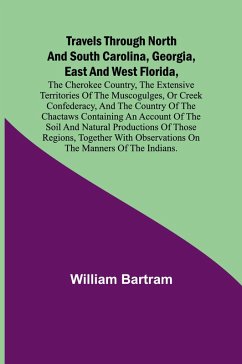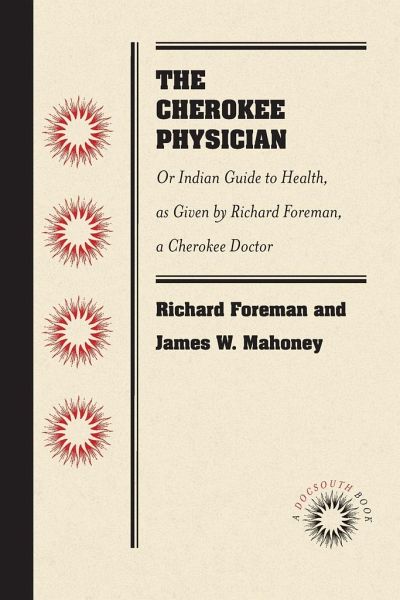
The Cherokee Physician
Or Indian Guide to Health, as Given by Richard Foreman, a Cherokee Doctor
Versandkostenfrei!
Versandfertig in 1-2 Wochen
36,99 €
inkl. MwSt.

PAYBACK Punkte
18 °P sammeln!
The extended title of The Cherokee Physician serves as an apt summary of its contents. The book was the result of a remarkable collaboration between James Mahoney, an Irish American and native Tennesseean, and Richard Foreman, whose parental ancestry was probably Scottish and Cherokee. Typical of its time, the book dispenses moral advice as cheerfully as medical advice. Needless to say, much of its advice flies in the face of modern medical practice and should not be applied. Foreman and Mahoney warn against sitting by an open window and offer conjecture, now disproven, about the pathologies o...
The extended title of The Cherokee Physician serves as an apt summary of its contents. The book was the result of a remarkable collaboration between James Mahoney, an Irish American and native Tennesseean, and Richard Foreman, whose parental ancestry was probably Scottish and Cherokee. Typical of its time, the book dispenses moral advice as cheerfully as medical advice. Needless to say, much of its advice flies in the face of modern medical practice and should not be applied. Foreman and Mahoney warn against sitting by an open window and offer conjecture, now disproven, about the pathologies of illnesses such as yellow fever and undulant fever ("milk sickness"). On the other hand, some of its cures have come into vogue or else find modern scientific endorsement, with examples from the text including the anti-inflammatory properties of red pepper and the usefulness of the European plantain. The volume has intrigued homeopathic practitioners through the years, and attracted the interest of contemporaneous practitioners, including, for instance, one doctor who wrote to the Therapeutic Gazette (September 1881) to enthusiastically endorse its cure for "gravel" through Gravel Weed (Actinomeris Helianthoides). "Gravel" translates to kidney stones in contemporary parlance; modern homeopathic sources say little about the common flower's use as a diuretic, furnishing one example of knowledge in The Cherokee Physician that has escaped modern evaluation. The book offers, by slant, interesting ethnographic observations, equally unproven. A DOCSOUTH BOOK. This collaboration between UNC Press and the University of North Carolina at Chapel Hill Library brings classic works from the digital library of Documenting the American South back into print. DocSouth Books uses the latest digital technologies to make these works available in paperback and e-book formats. Each book contains a short summary and is otherwise unaltered from the original publication. DocSouth Books provide affordable and easily accessible editions to a new generation of scholars, students, and general readers.




